
2002 Channel Islands Gold Crowns
150th Anniversary of the Duke of Wellington's Death
In 2002, the Channel Islands issued a set of three gold £5 crowns to commemorate the 150th Anniversary of the Duke of Wellington's Death.The issue limit of each coin was 200 pieces.
The Duke of Wellington
When the Duke of Wellington died at Walmer Castle in September 1852 he was perhaps, after Queen Victoria, the best known person in Britain. His reputation had been assured by his victory over Napoleon at the Battle of Waterloo in June 1815. It was, he admitted himself, a close call; but the victory not only marked the end of Napoleon's military adventures but brought peace to Europe for the next hundred years. After Waterloo, the Duke entered politics and even served as Prime Minister between 1828 and 1830. his stature was such that even his political opponents respected him and no controversy could diminish his reputation. Queen Victoria spoke for the nation when she sadly reflected after his death: "To think that all of this is gone; and that this great and immortal man belongs now to history". 2002 sees the 150th anniversary of the death of this great military leader and statesman. to commemorate his life each of the three main Channel Islands has authorised the Royal Mint to produce a limited number of collector coins in gold and silver.
Coin Designs
- Alderney
A mature portrait of Wellington set against the background of Walmer Castle, the place where he died. - Guernsey
A young Sir Arthur Wellesley, at the campaign of his campaign in India. - Jersey
Wellington and his soldiers at the time of the Peninsular War.
Technical Specifications
| Denomination | Diameter | Weight | Fineness | Gold Content |
|---|---|---|---|---|
|
Five Pounds 2002
|
38.61 | 39.94 | .9166 | 1.1771 |
|
Set of 3
|
119.82 | .9166 | 3.5313 |
Prices & Availability
| Date | Denomination | Description | Grade | Mintage | Issue £ | Availability | Price £ | Price $ |
| 2002 | 3 x Five Pounds | 150th Anniversary of the Duke of Wellington's Death | Proof | 200 | £1,745? | Yes | £1,995 | $3,790 |
Postage & Packing
UK Registered Post (Special Delivery) £9 per orderEU Insured Post £10 per order
USA Airmail $10 per order
USA Insured Shipping by Fedex $40 per order
Alderney Silver and Base Metal Coins
For silver and base metal coins of Alderney, please look at our original Chard Coins website.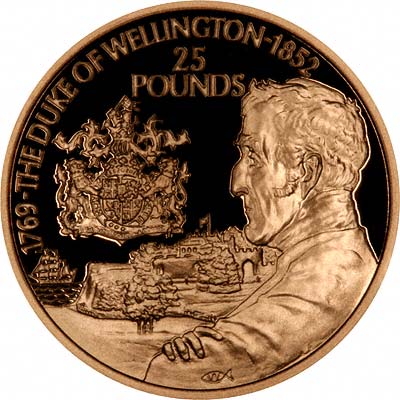
Duke of Wellington on Reverse of 2002 Alderney Gold £5 Crown
Channel Islands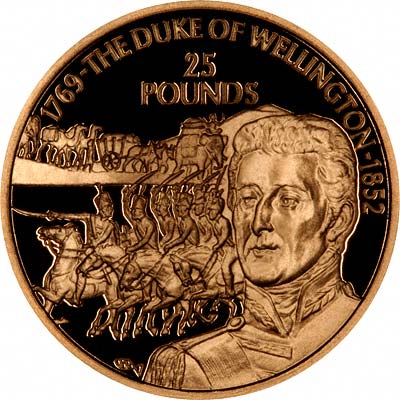
Duke of Wellington on Reverse of 2002 Guernsey Gold £5 Crown
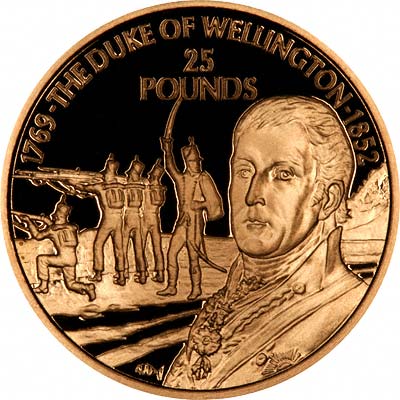
Duke of Wellington on Reverse of 2002 Jersey Gold £5 Crown
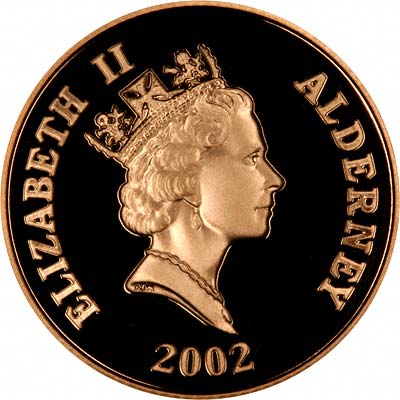
Obverse of 2002 Alderney Gold £5 Crown
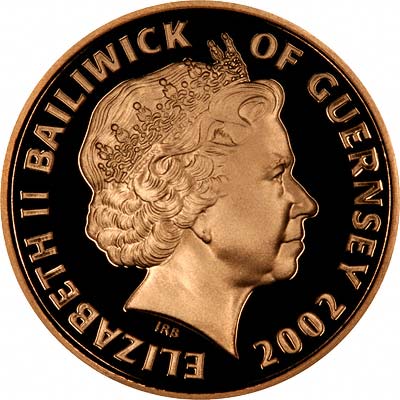
Obverse of 2002 Alderney Gold £5 Crown
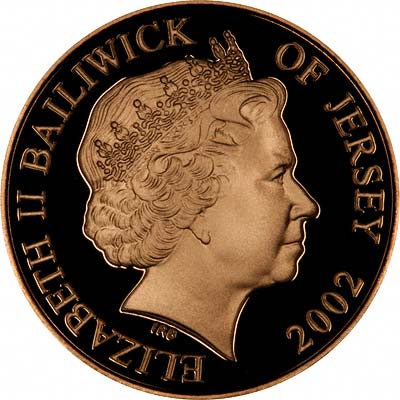
Obverse of 2002 Alderney Gold £5 Crown
"Tax Free Gold" website is owned and operated by Chard (1964) Limited
32 - 36 Harrowside, Blackpool, Lancashire, FY4 1RJ, England. Telephone (44) - (0) 1253 - 343081; Fax 408058;
E-mail: Contact Us The URL for our main page is: taxfreegold.co.uk
32 - 36 Harrowside, Blackpool, Lancashire, FY4 1RJ, England. Telephone (44) - (0) 1253 - 343081; Fax 408058;
E-mail: Contact Us The URL for our main page is: taxfreegold.co.uk
